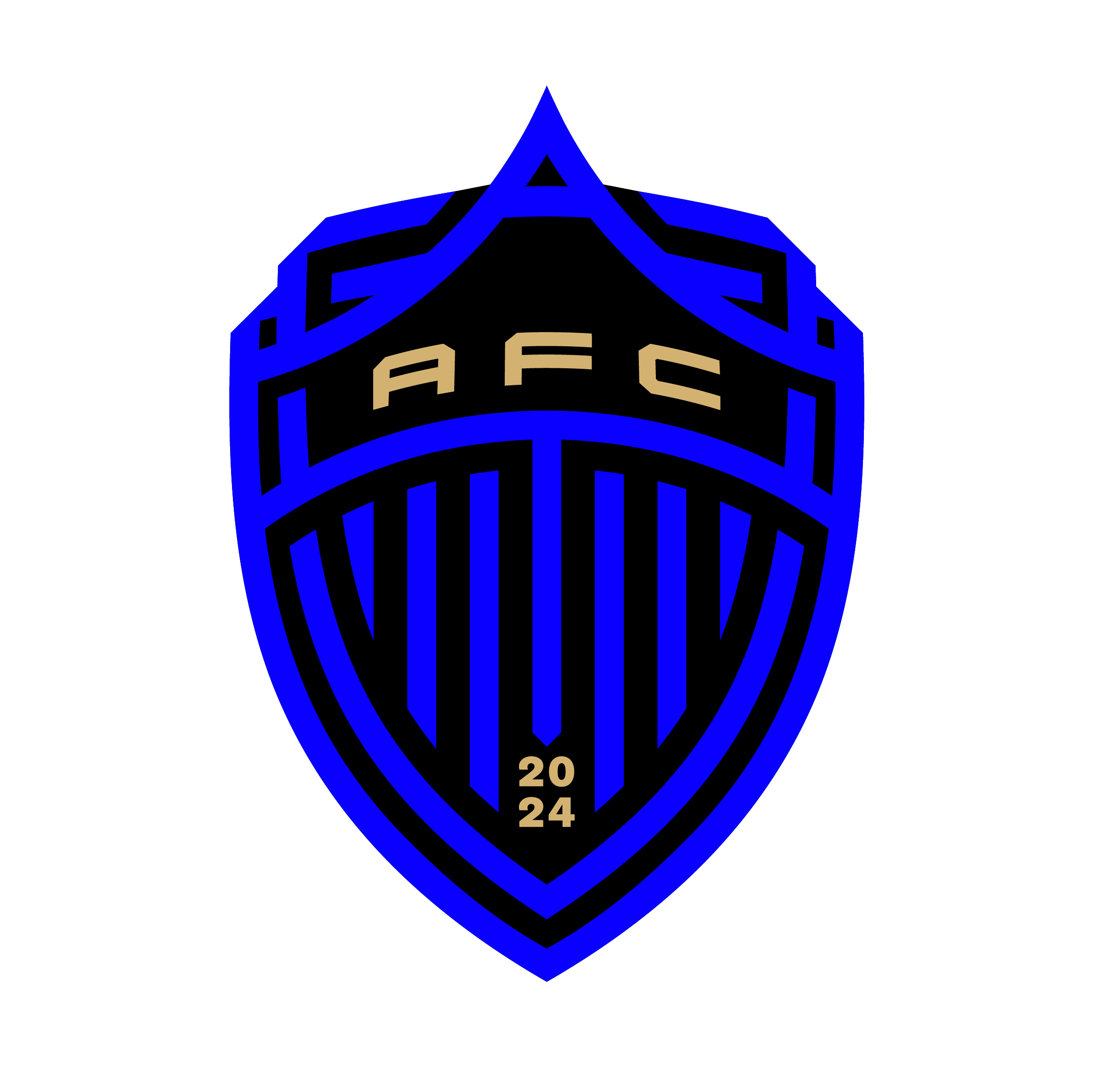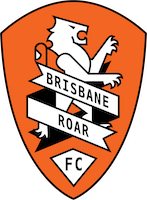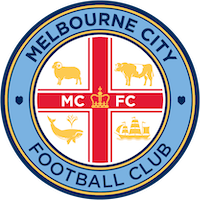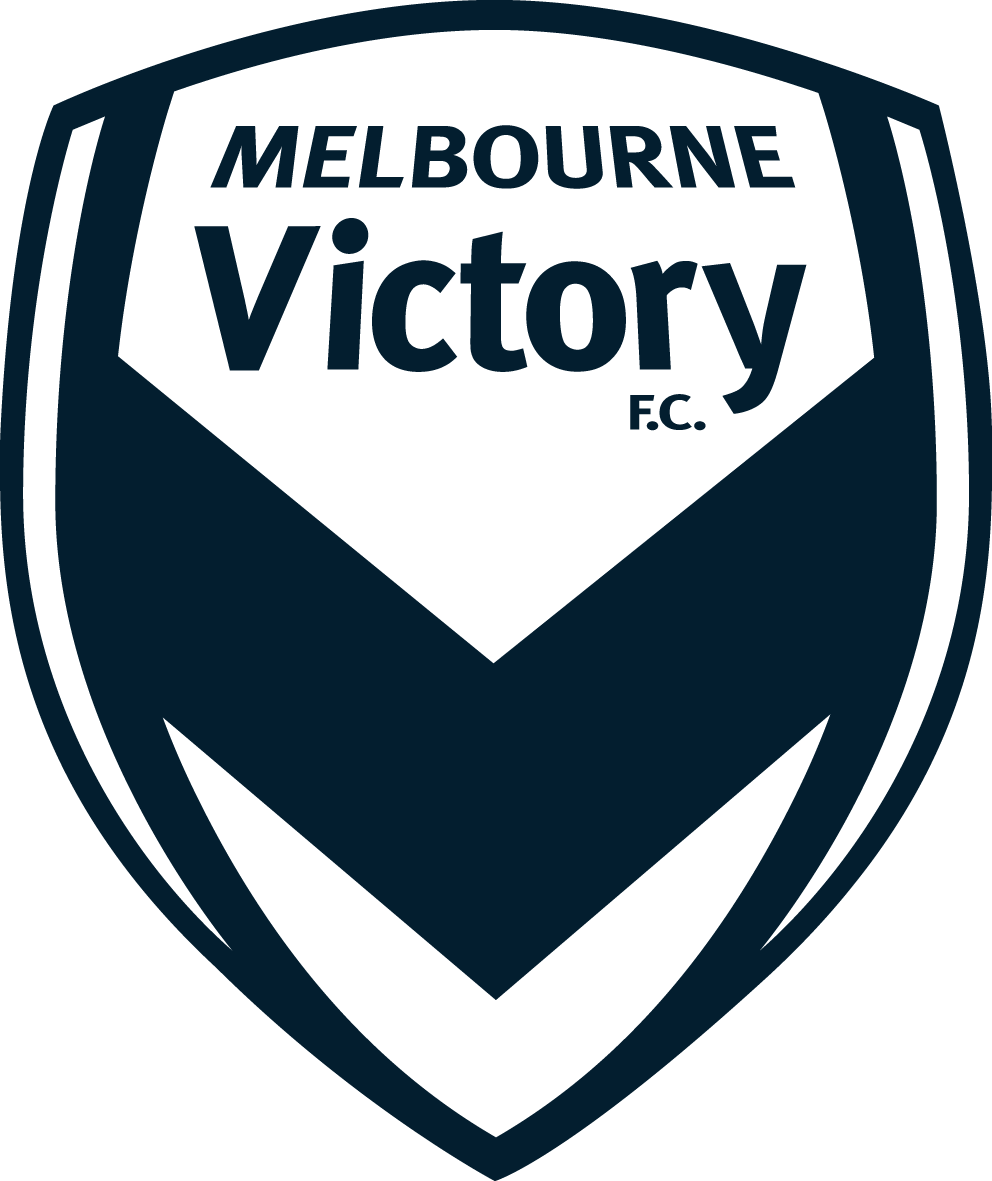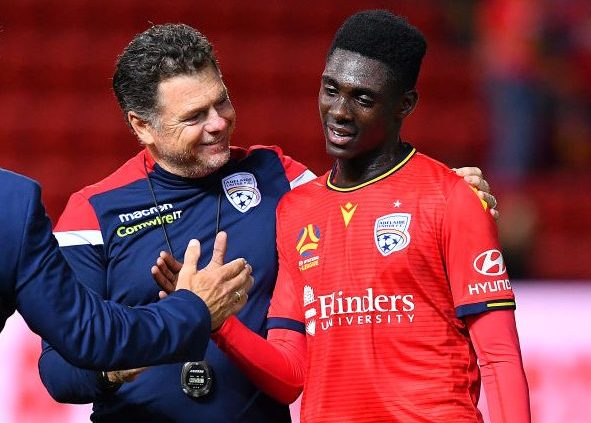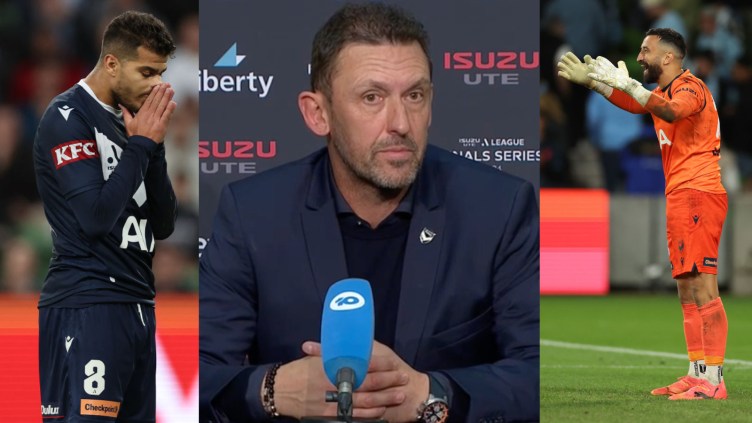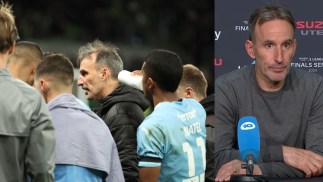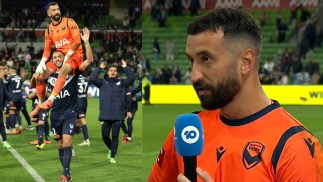Adelaide United’s boss Carl Veart is as competitive as they come. But he takes as much pride, if not more, in creating a safe environment for his players, than he does in winning. For KEEPUP, he writes about the culture he has created at Adelaide United.
There’s a word that keeps coming up when I try to define how I coach, and the environment I want to create.
Most of all I want my players to feel safe. Safe to be themselves, to learn, to make mistakes, to express themselves. I want them to feel safe to enjoy themselves at training, and to explore who they are as footballers.
I worked in youth development for a long time before I came back to Adelaide United, and I have my own playing days to inform how I coach now as well.
When I was a young player coming through at Adelaide City, I had the great Zoran Matic as my coach, and he remains a powerful influence. But the world has changed since I was young and headstrong. Zoran was very tough, very strict, and didn’t really allow me to express myself fully. In many ways it was more important that I abided by the rules.
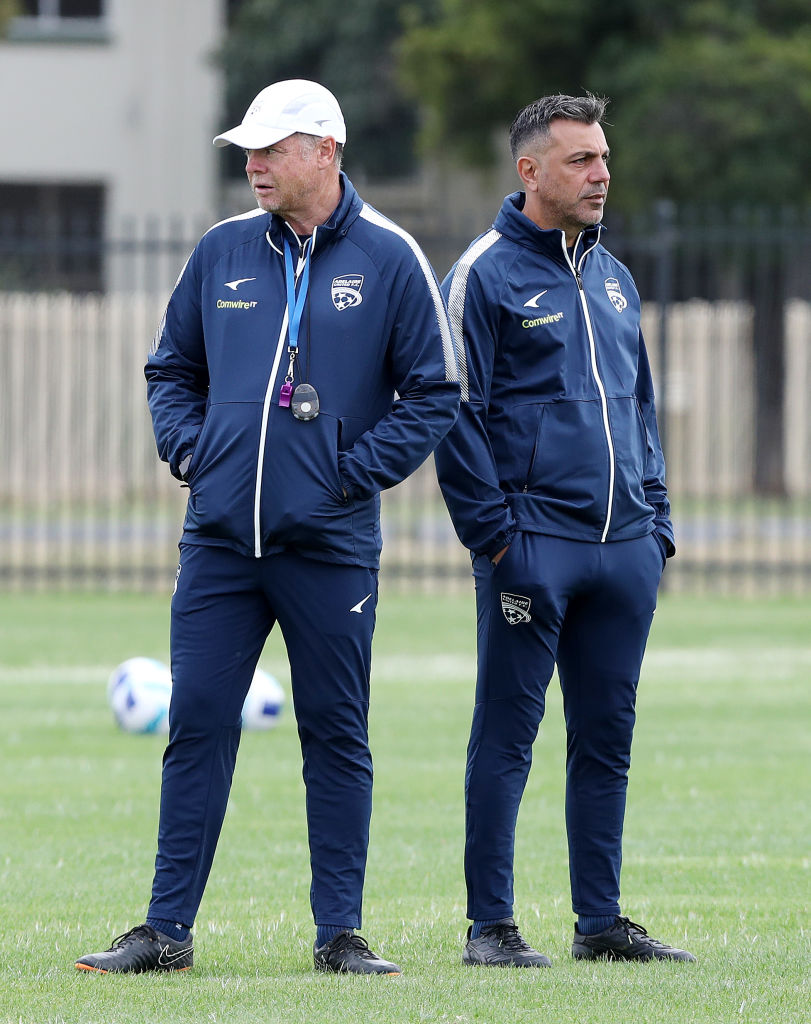
I have rules as well, but one thing I’ve learned from my coaching career so far is that you have to give the young players the freedom to express themselves and learn through trying things.
Last season we had the youngest squad in the A-League, and I knew that came with certain risks – but it also carries rewards. This year the average age is a bit older (re-signing Isaias will do that to you) but we still have a crop of players in their late teens and early 20s who are making their way in professional football – and in life.
Players young and old will make mistakes; it just tends to be that the older guys avoid some of the more basic, and their experience steers them away from trouble. But I think you can tell from the way we play and the way the players get on that they back each other.
That team mentality comes from a dressing room where players feel safe to have a voice, safe to be themselves as individuals, and safe to make positive decisions in the knowledge they won’t have their heads bitten off.
That’s why, when one of my players came to me and my assistant, Ross Aloisi, to tell us he wanted to come out as gay, I felt confident that the only thing he would find in our dressing room was total support.
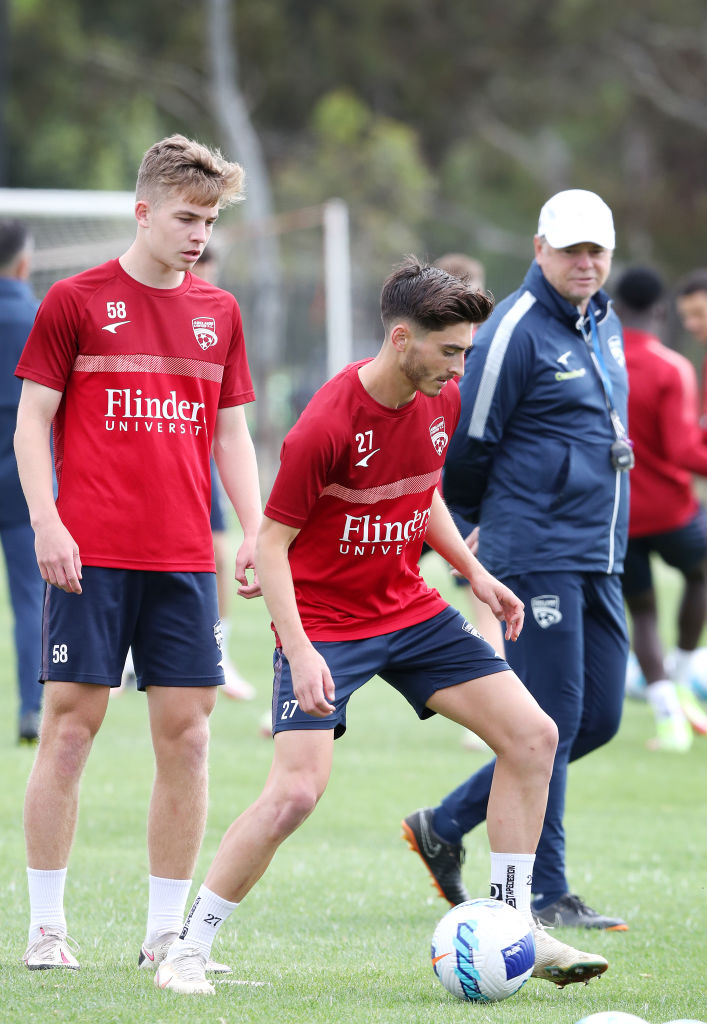
THE day that Josh Cavallo announced to the world that he was the only gay male footballer comfortable enough to be open about that fact caused a worldwide reaction. But our primary concern was always to make sure that his own workplace was – that word again – completely safe.
I’m lucky in having an assistant like Ross who is very personable with all the players, talks to them incessantly and gets on well with the playing group. What unfolded was, from our point of view, pretty special, and I don’t just mean the immediate and completely supportive reaction from Josh’s peers.
Clearly as coaches we set out to give him whatever support he needed, and he has dealt with the pressure of his announcement really well, in the sense that even now people want to speak to him and learn about him. But as importantly he’s performed exceptionally well in our first two games. It’s vital for Josh that he becomes as well known for being a top-quality footballer as anything else, and he has managed all of the expectations on him brilliantly.
All of these guys have wide-ranging personalities, and they need an environment where it’s safe to be themselves, away from football but on the pitch too. Some of my young boys are pretty out there, someone like Kusini Yengi is very dominant and has a lot of flair and individuality.
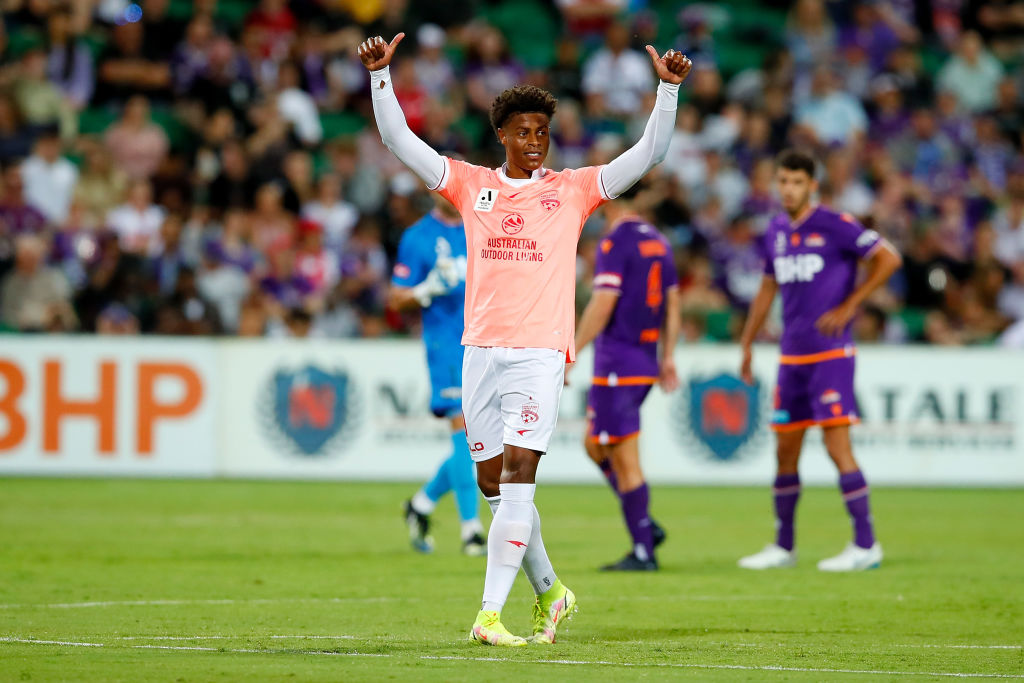
It’s important that we allow him to express himself on the pitch, to get the best out of him. There’s one thing that I’m very mindful of with younger players, that they feel they can make decisions without being shouted at.
At the end of the day, I want them to be better footballers, but I want them to work out how to be better footballers, with my guidance. Something I believe that’s critical for a coach is to be very consistent with your messaging. I’m never really that critical with players who make mistakes so long as I can see they’re giving me their best and they’re trying to make the right decisions.
Then we can sit down afterwards and go through their game and work out what was the better decision. It’s not me telling them what that is, it’s us coming to a conclusion that they then can use to make better decisions.
I’VE talked a lot here about the young boys, but the experienced guys enable me to coach as I do. I give Stefan Mauk as captain and the other older guys a lot of freedom to manage the change room. The bond they feel with each other is as important as anything and it needs to happen naturally.
We recruit carefully in terms of people as much as players. Before we go down that path, I have a conversation with a player and you get a feel for them. It’s important that we bring players in that aren’t too self absorbed.
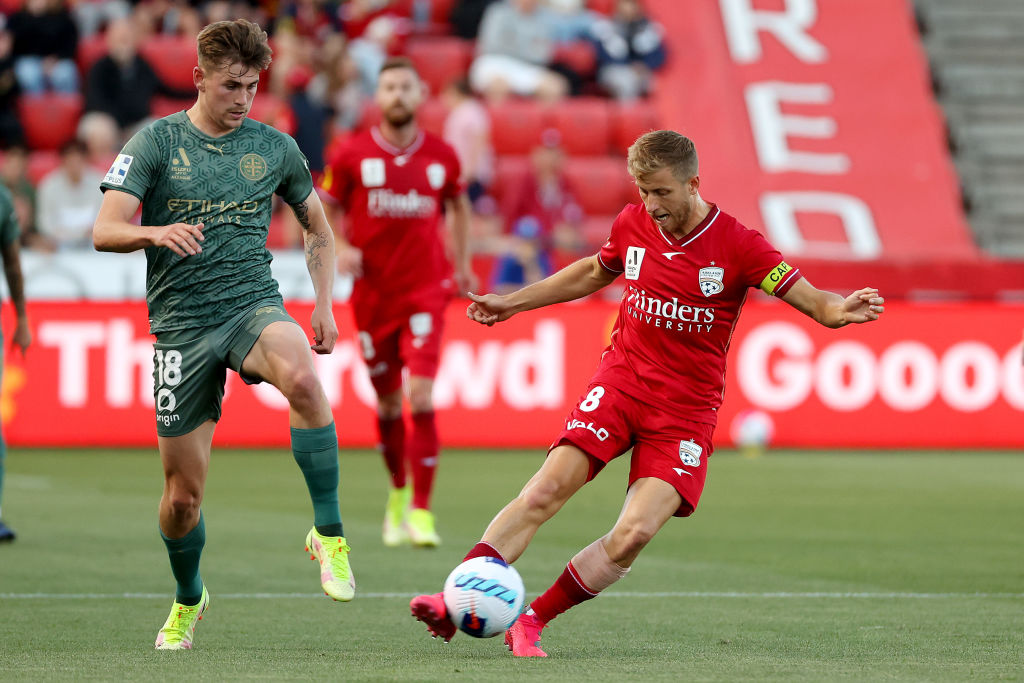
We’re a little bit different in SA, Adelaide is quite a relaxed town to live in, and it’s an easy-going place. Players we bring in have to fit that mould; it just wouldn’t work if we brought a player in who was quite demanding, or quite angry and shouted a lot. That wouldn’t fit the culture that we’re trying to promote in the club.
Yet you mustn’t confuse that with a lack of desire. I consider myself a winner and we try to install that mentality into our playing group. The way we train, there’s a lot of competition. We try to always have that level of competition where there’s winners and losers, and there’s a punishment for the losers to try to develop that winning mentality.
Ultimately it’s all about trying to get the best out of your players, and whichever way works with each of them. I have conversations with my players outside of football and I hope they can relate to me beyond being just their football coach.
Understanding players involves being prepared to listen to them, and in a way that makes them feel safe enough to discuss whatever issues they need to talk about. The environment is key to that, and I feel as proud of that when my team wins as I do of the football on the training ground during the week.
Have you heard our new A-Leagues anthem yet? Listen below!

